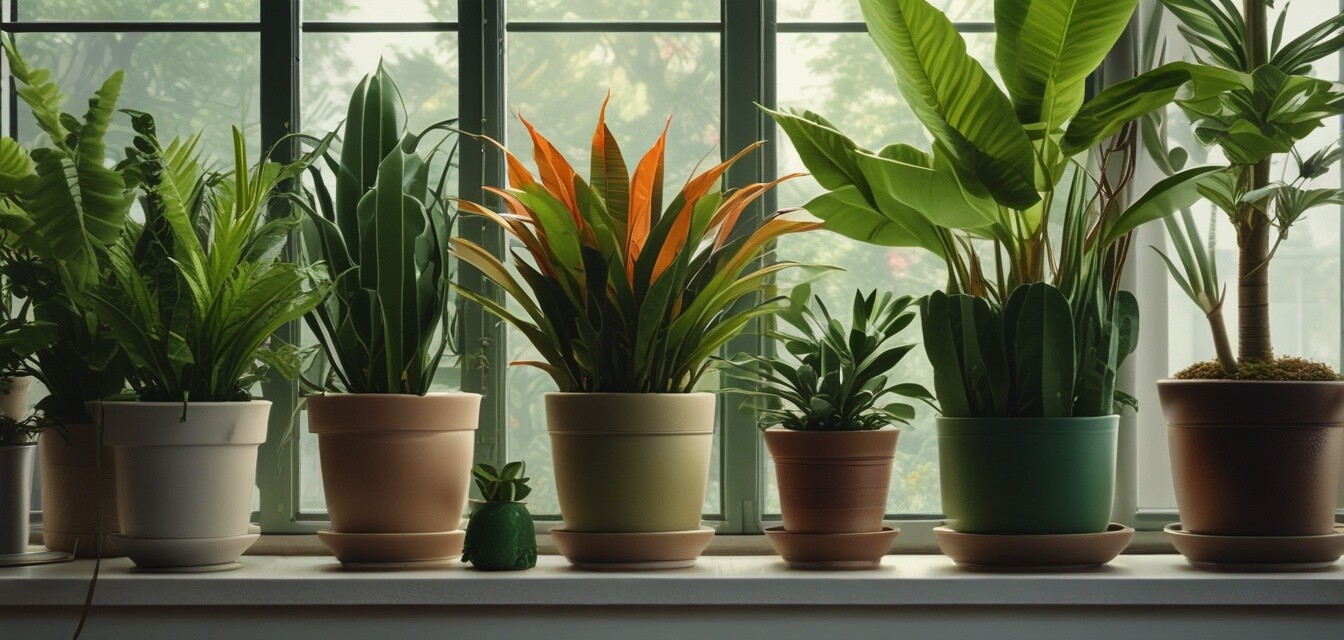
Winter Care Tips for Tropical Houseplants
- Keep your tropical plants warm; ideal temperature ranges from 65°F to 80°F.
- Reduce watering during winter to prevent root rot; only water when the top inch of soil is dry.
- Provide sufficient humidity; use humidifiers or pebble trays to maintain moisture.
- Ensure adequate lighting by placing plants near bright windows or using grow lights.
- Monitor for pests; inspect leaves regularly and treat any infestations promptly.
Taking care of tropical houseplants during the winter can seem daunting, but with a few key practices, you can keep your greenery thriving even in the coldest months. These plants often require specific conditions to flourish, especially when temperatures drop. In this article, we’ll cover essential winter care tips to help your tropical houseplants stay healthy and vibrant all season long.
Understanding Tropical Houseplants
Tropical plants originate from warm climates and are accustomed to high humidity and consistent warmth. During winter, many people struggle to replicate these conditions indoors. Knowing your plants' needs can make all the difference.
Common Tropical Houseplants to Consider
| Plant Type | Light Requirements | Watering Needs | Humidity Preference |
|---|---|---|---|
| Philodendron | Bright, indirect light | Moderate; let the top soil dry out | High humidity |
| Fiddle Leaf Fig | Bright, indirect light | Let the top inch dry out | Moderate to high humidity |
| Snake Plant | Low to bright light | Low; allow soil to dry completely | Normal humidity |
Temperature Management
Tropical houseplants thrive in warmth. Here are some tips for managing temperatures:
- Avoid drafts: Keep your plants away from doors and windows where cold air might enter.
- Maintain a consistent temperature: Ideally, keep the room temperature between 65°F and 80°F.
- Consider heating mats: For extremely cold areas, use heating mats under pots to keep roots warm.
Watering During Winter
Watering needs change significantly in winter. Here’s how to manage it:
- Check the soil moisture: Always stick your finger in the soil; only water if the top inch is dry.
- Use room temperature water: Cold water can shock roots, so let it sit for a while before using.
- Reduce frequency: Tropical plants generally need less water in the winter because of lower light and humidity.
Humidity: An Essential Factor
Humidity is crucial for tropical plants. Here are some methods to increase humidity levels:
- Use a humidifier: Great for maintaining a moisture-rich environment.
- Pebble trays: Place pebbles in a tray and fill with water, setting your plant on top (without touching the water).
- Group plants together: This can create a micro-humid environment.
Providing Adequate Light
As the days get shorter, providing enough light is essential:
- Bright windows: Place your tropical plants near windows that receive ample natural light.
- Rotate plants: Turn your plants regularly to ensure even light distribution.
- Grow lights: If natural light is limited, supplemental grow lights can provide the needed intensity.
Monitoring for Pests
Winter can bring pests indoors. To protect your houseplants:
- Inspect regularly: Check the undersides of leaves and stems for signs of insects.
- Use insecticidal soap: Apply as a treatment if you find pests.
- Keep plants clean: Wipe leaves with a damp cloth to remove dust that can attract pests.
For further insights into caring for your plants, visit our Care Tips section. Explore our guides on everything from air-purifying plants to pet-friendly varieties. Always ensure you keep your little green friends happy during winter!
Pros
- Promotes healthy growth during winter.
- Helps avoid common pitfalls such as root rot.
- Improves the overall appearance of your indoor garden.
Cons
- Requires monitoring and adjustments.
- Can be challenging with fluctuating indoor temperatures.
- High humidity may lead to mold growth if not managed properly.
Conclusion
Winter care for tropical houseplants doesn't have to be overwhelming. By following these tips and adjusting your care routines, you can help your plants thrive even in the coldest months. Remember that each plant may have its unique needs, so always observe and adapt your methods accordingly. Happy growing!

